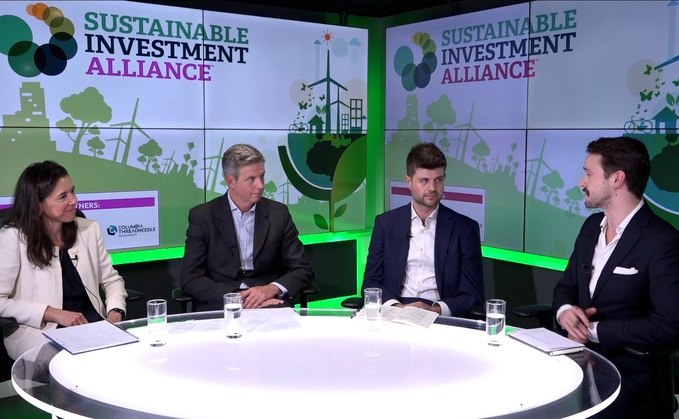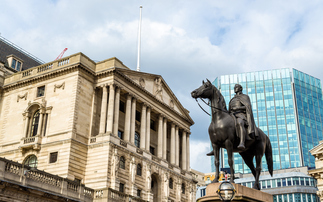
Expectations were high ahead of COP27 with hopes that the climate summit would deliver progress where COP26 failed to.
Top of the agenda at the meeting of the United Nations climate change conference of the parties were discussions on how to preserve the Paris Agreement 1.5° goal; loss and damage funding; and increasing adaptation finance.
After intense 11th hour negotiations, an historic pact was made for the first time in 30 years of climate talks with developed countries agreeing to provide financial support to poorer countries affected by climate-related disasters. But tensions remain high among the member nations and while relative success was achieved in pushing through the loss and damage agreement, little headway was made on other items on the itinerary at Sharm-el-Sheikh.
Professional Adviser's sister title Sustainable Investment hosted a roundtable with representatives from Incisive Media's Sustainable Alliance - our partnership with Columbia Threadneedle Investments, Eden Tree and Royal London Asset Management - where we discussed what progress has been made since COP26, what needs to happen next and the role of private investors in supporting climate change initiatives.
Joining the editor of PA's sister title Investment Week James Baxter-Derrington for the discussion were Eden Tree chief investment officer Charlie Thomas, Columbia Threadneedle senior analyst responsible investment Joe Horrocks-Taylor, and Royal London Asset Management head of engagement Carlota Garcia-Manas.
In broad terms how do you think we have progressed since COP26 to what happened at COP27?
Joe: COP conferences are like a relay race. We have that handing over of the baton between the different hosts. I think with the UK to Egypt, for a variety of different reasons, it wasn't a smooth handover. It's a tortuous time in UK politics and Egypt stepped in to host its first major conference with a different set of priorities, potentially, to the UK. There was a shift from the focus on 1.5° mitigation to loss and damage and adaption coming to the fore at this COP.
There was a focus on the damaging divide between richer and poorer nations in regard to climate change at COP27. How did that come across?
Joe: The priorities of a lot of the developed nations have been really trying to keep that 1.5° dream alive, collaborating with smaller island states as well. We saw some real progress on that at COP26; the world was on track for 2.7 at COP26 and it went down to 2.4 after COP26 which was really encouraging. Then there was that ratchet mechanism, so countries had to come in with new pledges before COP27. Unfortunately, we didn't quite see the same scale that we would have hoped for, with only 24 new pledges coming in. There were a few bright sparks in there with Mexico coming in with a strong one, Turkey as well with net zero in 2053 and Australia and India as well coming in with a few bits. But maybe not quite the magnitude we would have liked.
Charlie: In many respects it was the reset between richer countries and poorer countries around the loss and damage. In some respects we came to a historic deal, but it was one where we were celebrating adaption when mitigation has failed. Clearly there is a lot more to be done on the loss and damage fund. It's set out in principle but what we don't want is a bank account with no money in it. And that's still got to be thrashed out.
What role can investors continue to play and what are the potential opportunities for them?
Carlota: One of the success factors out of COP27 was more dialogue and more signals regarding climate transition plans. So the private sector seeing more coalescing around their requirements, not just on solution companies to be there but also on incumbent companies to be thinking how they pivot their business models. That is core to our engagement…With the companies we engage with we focus on seeing those climate transition are credible and seeing they are delivering into the real economy.
The other aspect of our engagement is through advocacy. I don't place all my chips on policy, but policy and regulators have a role to play, mostly on signaling stable policy intervention. Through some of the trade associations we participate in calls for evidence where we feel that with an intervention at the public policy level, we may actually be more effective than one company at a time.
Over the past few weeks, what has either given you hope or is something you would like to see discussed either at COP28 or over the course of the coming year?
Carlota: We would like to see more alignment at a global level in the same way countries need to align at policy level. It's very difficult to evaluate something in a consistent manner. So we would like to see more coalescing and homogeneity around the guidelines that inform these issues.
Charlie: I would say COP is important; it brings people together, mostly for the good, sometimes it's more challenging. But don't forget the domestic level. I think there is a big underappreciation of the impact of the Inflation Reduction Act in the US for example or REPowerEU in Europe. These are important policy drivers as well. There is a natural focus on COP but we must not forget what is happening at a national level or indeed multi-national level. We have also got to remember that climate change does not sleep. This is a continuum. But there is undoubtedly growing pressure around this area and on that basis alone, you want to be hopeful.












